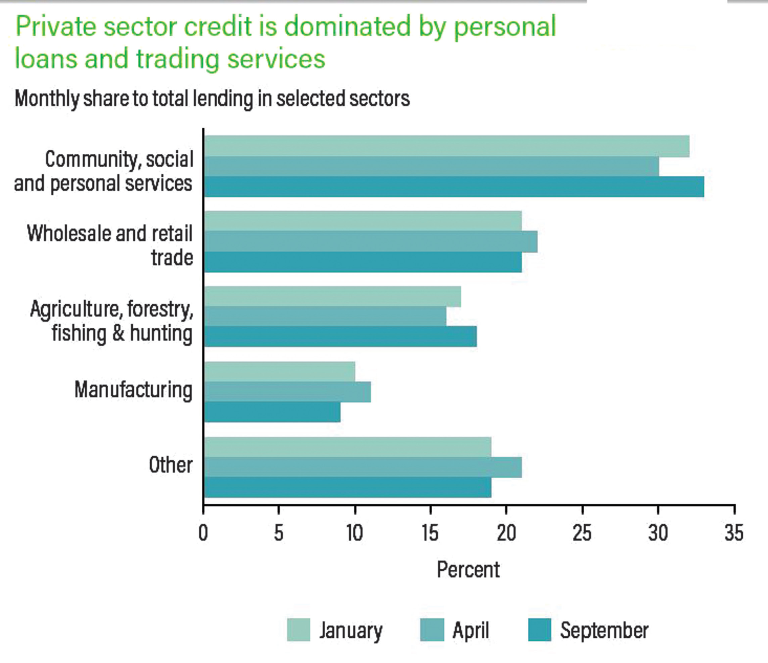Manufacturing sector gets least credit—RBM
The Reserve Bank of Malawi (RBM) figures show that community, social and personal services sector continues to hold the largest share of outstanding private sector credit, a trend market analysts say points to a neglected production sector.
RBM data shows that at 33 percent, the share of outstanding private sector credit to the community, social and personal services sector is the largest, outpacing wholesale and retail trade at 21 percent, agriculture, forestry, fishing and hunting at 16.4 percent and manufacturing, which is supposed to be the hub of economic activities, at 12 percent.

Speaking in an interview yesterday, Malawi Confederation of Chambers of Commerce and Industry president Lekani Katandula described the trend as a fair reflection of the country’s diminished manufacturing sector as there is so much reliance on imports.
“As a country, we need deliberate measures to reverse this trend and grow our manufacturing sector,” he said.
Katandula, who is also Illovo Sugar (Malawi) plc managing director, said appropriate tax measures and exchange rates that discourage unnecessary imports coupled with improved electricity supply could be a good starting point to resuscitate local production.
Speaking separately, Consumers Association of Malawi executive director John Kapito said the trend shows that the market has moved more to consumption than producing, calling for deliberate policies to help reverse the trend.
He said: “The more we have these disparities, the more the economy will not grow as we continue investing in wrong sectors.
“There is need for a quick economic policy shift for purposes of creating employment and motivating the private sector to venture into local production and at the same, ensuring that banks are more friendly to productive sectors with better interests rates.”
RBM data shows that on a monthly basis, the stock of private sector credit increased by K25.4 billion or 2.6 percent, to K1 trillion in October 2022 following another increase of K10.4 billion or 1.1 percent in the previous month.
The upturn was supported by increases of K13.1 billion in individual household loans, K9.2 billion commercial and industrial loans and K3.8 billion mortgage loans.
At the same time, increased credit to government is eroding resources for the private sector, which is touted as the engine of economic growth and an enabler for economic activities and job creation.
World Bank data shows that as of September 2022, net credit from the banking sector to the private sector had increased by 22.4 percent year-on-year while net credit to government had increased by 66.3 percent over the same period.
Minister of Finance and Economic Affairs Sosten Gwengwe said in an interview on Thursday that to address the situation, government is working on reducing fiscal deficits to reduce domestic debt.
In the 2022/23 National Budget, Treasury has cut the budget deficit projection from 8.8 percent of gross domestic product (GDP) to 7.1 percent of GDP.





